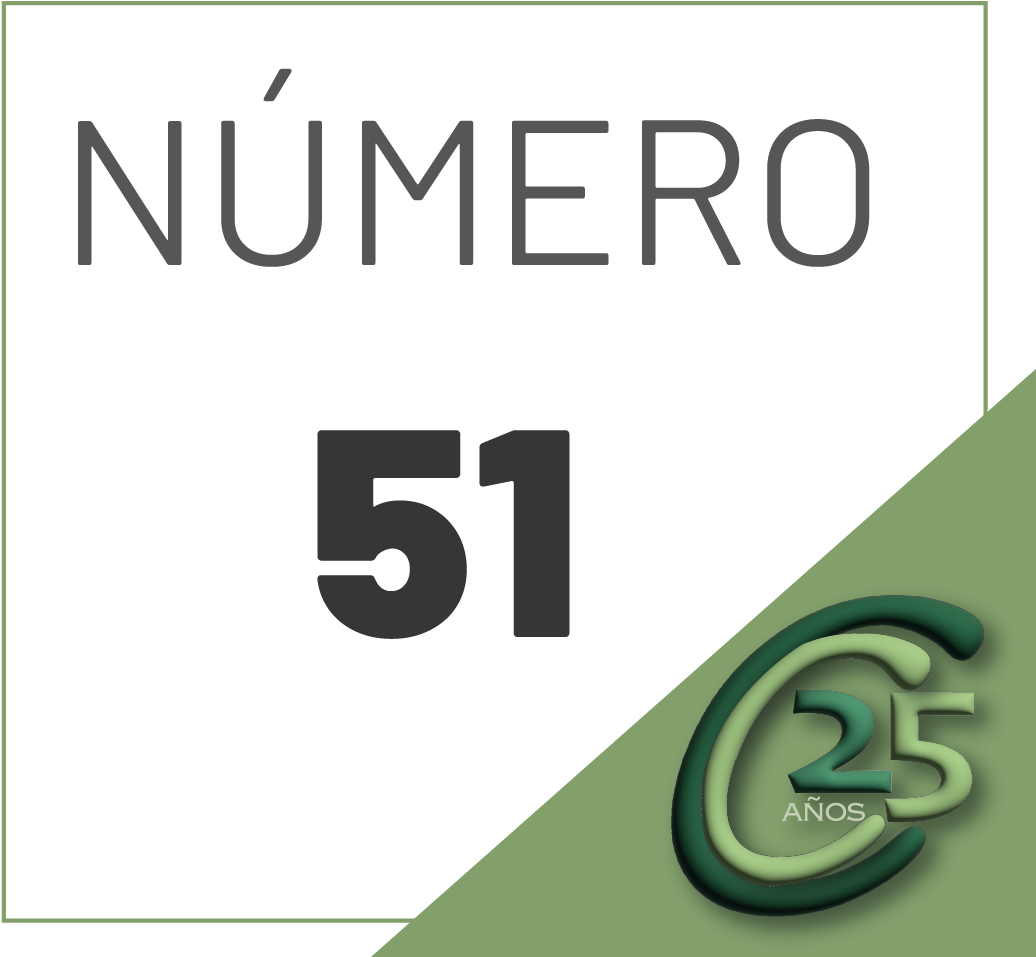El debate constitucional sobre el derecho al aborto en Estados Unidos
El artículo muestra el debate constitucional sobre el derecho al aborto entre las diferentes escuelas jurídicas dominantes en la Suprema Corte de los Estados Unidos de América. Se sostiene que el debate en el seno de la Suprema Corte de ese país, además de ser una lucha entre liberales y conservadores, es también entre dos filosofías jurídicas sobre cuál debe de ser el papel político del Poder Judicial dentro de una sociedad que se considera a sí misma democrática: el activismo judicial vs. la restricción judicial —esta última integrada por el originalismo y el textualismo—.
Detalles del artículo
Uso de licencias Creative Commons (CC)
Todos los textos publicados por el Cuestiones Constitucionales. Revista Mexicana de Derecho Constitucional sin excepción, se distribuyen amparados con la licencia CC BY-NC 4.0 Internacional, que permite a terceros utilizar lo publicado, siempre que mencionen la autoría del trabajo y la primera publicación en esta revista. No se permite utilizar el material con fines comerciales.
Derechos de autoras o autores
De acuerdo con la legislación vigente de derechos de autor el Cuestiones Constitucionales. Revista Mexicana de Derecho Constitucional reconoce y respeta el derecho moral de las autoras o autores, así como la titularidad del derecho patrimonial, el cual será transferido —de forma no exclusiva— a Cuestiones Constitucionales para permitir su difusión legal en acceso abierto.
Autoras o autores pueden realizar otros acuerdos contractuales independientes y adicionales para la distribución no exclusiva de la versión del artículo publicado en Cuestiones Constitucionales. Revista Mexicana de Derecho Constitucional (por ejemplo, incluirlo en un repositorio institucional o darlo a conocer en otros medios en papel o electrónicos), siempre que se indique clara y explícitamente que el trabajo se publicó por primera vez en Cuestiones Constitucionales.
Para todo lo anterior, deben remitir la carta de transmisión de derechos patrimoniales de la primera publicación, debidamente requisitada y firmada por las autoras o autores. Este formato debe ser remitido en PDF a través de la plataforma OJS.
Derechos de lectoras o lectores
Con base en los principios de acceso abierto las lectoras o lectores de la revista tienen derecho a la libre lectura, impresión y distribución de los contenidos de Cuestiones Constitucionales por cualquier medio, de manera inmediata a la publicación en línea de los contenidos. El único requisito para esto es que siempre se indique clara y explícitamente que el trabajo se publicó por primera vez en Cuestiones Constitucionales. Revista Mexicana de Derecho Constitucional y se cite de manera correcta la fuente incluyendo el DOI correspondiente.

Esta obra está bajo una licencia internacional Creative Commons Atribución-NoComercial 4.0.
Citas
Anton, J. (2018). The Life and Legacy of Norma McCorvey. History in the Making.
Anzarouth, M. (2022). The Misguided Criticism of Judge Ketanji Brown Jackson’s Judicial Philosophy. Harvard Political Review. https://harvardpolitics.com/the-misguided-criticism-of-judge-ketanji-brown-jacksons-judicial-philosophy/
Balkin, J. (2019). Why Liberals and Conservatives Flipped on Judicial Restraint: Judicial Review in the Cycles of Constitutional Times. Texas Law Review, 98, 215-265.
Bella, T. (2022). Texas AG says he’d defend sodomy law if Supreme Court revisits ruling. Washington Post. https://www.washingtonpost.com/politics/2022/06/29/texas-sodomy-supreme-court-lawrence-paxton-lgbtq/
Blackmore, H. (2008). Principios constitucionales. En R. Fernández y H. Blackmore (Coords.), ¿Qué es Estados Unidos? (pp. 126-164). Fondo de Cultura Económica.
Bringer, L. (2010). The ‘Trimester’ Lenguage of Roe v. Wade: State Legislators’ Conceptualization of Their Relationship with the Supreme Court. University of California.
Buchanan, N. y Dorf, M. (2020). A Tale of Two Formalisms: How Law and Economics Mirrors Originalism and Textualism. Cornell Law Review, 106, 591-676.
Cassidy, R. (2016). Scalia on Abortion: Originalism... But, Why? Touro Law Review, 32(4), 741-746.
Center for Reproductive Rights. (s.f.). After Roe Fell: Abortion Laws by State. Center for Reproductive Rights. https://reproductiverights.org/maps/abortion-laws-by-state/
DeLuca, L. (2015). Jane Roe Baptized by Former Adversary. The Dallas Morning News. https://www.dallasnews.com/photos/2015/08/10/career-in-a-year-photos-1995-jane-roe-roe-v-wade-baptized-by-former-adversary/
Devins, N. (2009). How Planned Parenthood v. Casey (Pretty Much) Settled the Abortion Wars. Yale Law Journal, 1320-1321.
Felix, A. (2019). A Short Biography of Ruth Bader Ginsburg. Benna Books.
Frommer, F. (2022). Justice Ginsburg Thought Roe Was The Wrong Case to Settle Abortion Issue. Washington Post. https://www.washingtonpost.com/history/2022/05/06/ruth-bader-ginsburg-roe-wade/
Gersen, J. (2021). The Mississippi Abortion Case and the Fragile Legitimacy of the Supreme Court. The New Newyorker. https://www.newyorker.com/magazine/2021/12/13/the-mississippi-abortion-case-and-the-fragile-legitimacy-of-the-supreme-court
Gómez, H. (2019). El ABC del sistema político de los Estados Unidos de América. Universidad Autónoma del Estado de Morelos.
Gómez, H. (2023). El discurso de odio y los límites de la libertad de expresión en Estados Unidos. Revista Mexicana de Ciencias Políticas y Sociales, 63(249), 281-306.
Greene, J. (2016). The Meming of Substantive Due Process. University of Minnesota Law Review, 31, 253-294.
Greenhouse, L. (2021). Sandra Dar O’Connor and the Reconsideration of Roe v. Wade. American Experience. https://www.pbs.org/wgbh/americanexperience/features/sandra-day-oconnor-and-reconsideration-roe-v-wade/
Gupta, A. (2020). Why Ruth Bader Ginsburg Wasn’t All That Fond of Roe v. Wade. New York Times. https://www.nytimes.com/2020/09/21/us/ruth-bader-ginsburg-roe-v-wade.html
Heagney, M. (2013). Justice Ruth Bader Ginsburg Offers Critique of Roe v. Wade During Law School Visit. The Law School of University of Chicago. https://www.law.uchicago.edu/news/justice-ruth-bader-ginsburg-offers-critique-roe-v-wade-during-law-school-visit
Higgins, M. (2013). Roe v. Wade: Abortion and a Woman’s Right to Privacy. ABDO Publishing.
Hollis-Brusky, A. (2015). Ideas with Consequences: The Federalist Society and the Conservative Counterrevolution. Oxford University Press.
Jenkins, J. (2012). The Partisan: The Life of William Rehnquist. Public Affairs.
King, J. (2008). Institutional Approaches to Judicial Restraint. Oxford Journal of Legal Studies, 28(3), 409-441.
Landau, D. y Dixon, R. (2020). Abusive Judicial Review: Courts Against Democracy. University of California Davis Law Review, 53, 1313-1387.
LaTasha, R. (2020). It’s me Choice, Right? Abortion Law Reform in the United States. FAU Undergraduated Law Journal, 106-113.
Library of Congress. (s.f.). Fourteenth Amendment Citizenship, Equal Protection, and Other Rights of Citizens. Library of Congress. https://constitution.congress.gov/browse/amendment-14/
McCarthy, E. (2018). In Defense of Griswold v. Connecticut: Privacy, Originalism, and the Iceberg Theory of Omission. Willamette Law Review, 54, 335-369.
McCorvey, N. (1995). I Am Roe: My Life, Roe v. Wade, y Freedom of Choice. Harper Collins.
McWhinney, E. (2019). Judicial Review in the English-speaking. University of Toronto Press.
Mississippi Gestational Age Act. (2018). EE.EE: Justia US Law. https://law.justia.com/codes/mississippi/2018/title-41/chapter-41/gestational-age-act/section-41-41-191/
Molony, T. (2020). Taking Another Look at the Call on the Field: Roe, Chief Justice Roberts, and Stare Decisis. Harvard Journal of Law & Public Policy, 43(3), 733-814.
Newburger, E. (2020). Amy Coney Barrett pays homage to conservative mentor Antonin Scalia. CNBC. https://www.cnbc.com/2020/09/26/amy-coney-barrett-pays-homage-to-mentor-antonin-scalia.html
Pacelle, R. (2002). The Role of the Supreme Court in American Politics: The Least Dangerous Branch? Routledge.
Pandey, S. (2020). Understanding Judicial Activism and Its Impact. GLS Law Journal, 4(2), 15-20.
PBS NewsHour. (28 de junio de 2010). Supreme Court Moments in History: Sandra Day O’Connor on Abortion. [Video]. Youtube. https://www.youtube.com/watch?v=fo8dzlGocP0
Pennsylvania General Assembly. (s.f.). Chapter 32. Abortion. https://www.legis.state.pa.us/cfdocs/legis/LI/consCheck.cfm?txtType=HTM&ttl=18&div=0&chpt=32
Peters, G. (1999). Institutional Theory in Political Science: The New Institutionalism. Pinter Publisher.
Pilon, R. (2020). Why I Am an Originalist—Properly Understood. Liberty.org. de https://lawliberty.org/why-i-am-an-originalist-properly-understood/
Rehnquist, W. (2020). Dissenting Opinion on Roe v. Wade. LandmarkCases.org. https://www.landmarkcases.org/assets/site_18/files/roe_v_wade/teacher/answers/decision_dissent_excerpts_roe_answer.pdf
Rowlinson, M. y Hassard, J. (2013). Historical Neo-institucionalism or Neo-Institutionalist History? Historical Research in Management and Organization Studies. Management & Organizational History, 8(2), 111-126.
Scalia, A. y Manning, J. (2012). A Dialogue on Statutory and Constitutional Interpretation. George Washington Law Review, 80(6), 1610-1619.
Scalia, A. (2002). God’s Justice and Ours. First Things, 17-21.
Senado de la República. (2018). La Constitución Política de México es una de las más reformadas en el mundo, señala el IBD. Senado de la República LXIV Legislatura. http://comunicacion.senado.gob.mx/index.php/informacion/boletines/42439-la-constitucion-politica-de-mexico-es-una-de-las-mas-reformadas-en-el-mundo-senala-elibd.html
Strauss, D. (2010).The Living Constitution. Oxford University Press.
Strauss, D. (2018). Why The Burger Court Mattered. Michigan Law Review, 116(6), 1067-1080.
Supreme Court of the United States. (1991). Planned Parenthood of Southeastern Pennsylvania ET AL. v. Casey, Governor of Pennsylvania, ET AL. US Supreme Court https://supreme.justia.com/cases/federal/us/505/833/case.pdf
Supreme Court of the United States. (2022). Dobbs, State Health Officer of the Mississippi Department of Healt, ET AL. v. Jackson Women’s Health Organization ET AL. US Supreme Court. https://www.supremecourt.gov/opinions/21pdf/19-1392_6j37.pdf
Trachtman, M. (2016). The Supremes Greates hits: the 45 Supreme Court Cases that Most Directly Affect Your Life. Sterling.
Van Meter, L. (2006). Miranda v. Arizona: The Rights of the Accused. Chelsea House.
Vitiello, M. (2020). Introducing the Warren Court’s Criminal Procedure Revolution: A 50-Year Retrospective. University of the Pacific Law Review, 51(4), 621-632.
Watson, B. (2020). Living Constitution, Dying Faith: Progressivism and the New Science of Jurisprudence. Open Road Media.










































